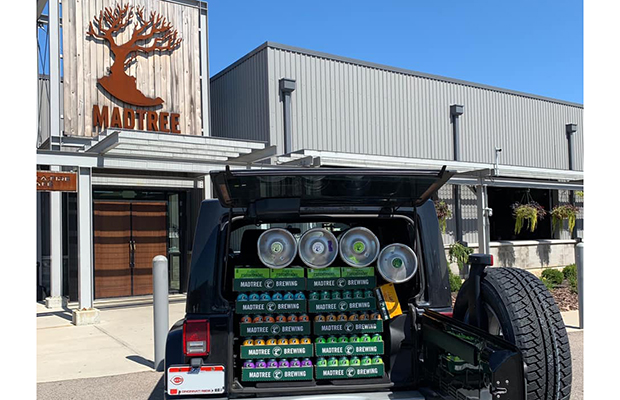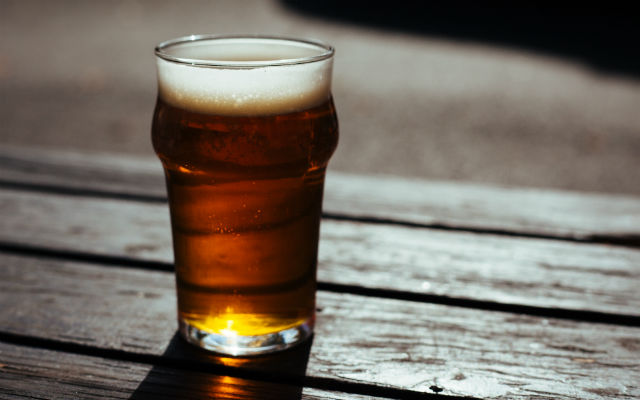
Why have a consumer come to you if you can now go to them? It’s become a new strategy for many breweries across the country as the COVID-19 pandemic continues to hamper businesses across the country.
Many breweries immediately went from across the bar service to curbside when they could. Others, especially those that already had self-distributing arms or available service vehicles, added in-home delivery as a sales option to the area around the brewery.
MadTree in Cincinnati has added local delivery to zip codes within a 25-mile radius on the Ohio side of its home market (delivery across state lines to neighboring Kentucky is not legal) and Lauren Amos, the brewery’s Experience Director said that sales between curbside and delivery have been fairly even.
Lost Abbey added local delivery as soon as on-premise sales were shut down. Marketing Director Adam Martinez said early on deliveries were keeping pace with shipping sales, but as the San Diego-based brewery’s tasting rooms have now opened up more hours for to-go business, deliveries are starting to go down, some of that due to fellow San Diego breweries getting into the delivery option as well.
The Lost Abbey sales staff had already converted to focusing on off-premise accounts, so they filled their cars up with home deliveries to do while they were out and about on sales calls.
“Since our sales staff already had company cars and the man-hours to work, the shift was pretty painless,” Martinez said, “though we’ve driven to parts of San Diego we never knew existed, so [that’s] also an adventure.”
MadTree rotates pockets of zip codes each day to concentrate deliveries and generate some demand by neighborhood through planned purchasing. Overall, Amos said that it is seeing sales pretty evenly split between curbside and delivery, both of which are the sole ways MadTree was able to generate taproom revenue.
Many employees have had to pivot into new roles to help keep moving the business along, she added.
“We have seen really great things from our employees stepping up to the new challenges and embracing the changes,” Amos said. “Utilizing our current technology platforms to do different business and finding new ones at reasonable prices has been the biggest challenge.”
Early on Combustion Brewing considered delivery yet with the success of its drive-thru pickup for consumers, owner/brewer Keith Jackson said they decided it was unnecessary and would create an unreasonable amount of cost and complication to the workflow.
“As a community-focused brewery and taproom, wide-scale distribution has not been part of our business model so our customer base is largely local,” he said. “If we were trying to get our beer to customers further away, delivery may have been a more viable option.”
Mail order, which is an option available for an Ohio brewery like Combustion, was not an option that they considered as well.
“We had to completely re-engineer how we do things and our strategy for how to get our beer and cider into our customers’ hands,” Jackson said in a release.” Our community is why we are still in business, the support has been overwhelming, and we will be forever grateful.”






Be the first to comment